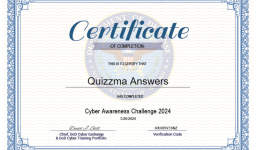- 10th Grade
- Lexile: 1210
Source: Puritan Laws and Character by Henry William Elson
Assessment Answers
| Question | Answer |
|---|---|
| What is the author’s main purpose in the passage? | to better understand how the character and laws of colonial Puritans led to the Salem Witch Trials |
| PART A: Which of the following statements best summarizes the relationship between religion and law in Puritan New England? | Law and religion were closely tied, as religious law heavily influenced legal practices and governing. |
| PART B: Which TWO of the following quotes best support the answer to Part A? | “The State was founded on religion, and religion was its life. The entire political, social, and industrial fabric was built on religion.” (Paragraph 5) “No further proof of the legalistic tendencies of Puritan worship is needed than a glance at their own laws.” (Paragraph 6) |
| How does paragraph 7 contribute to the development of ideas in the excerpt? | It explains how, despite their rigid laws and character, Puritans had some positive characteristics and should be viewed favorably in American history. |
According to the text, what happened to the Puritans’ influence in New England over time?
Over time, the Puritans’ influence in New England gradually softened, particularly in Massachusetts due to the presence of Crown officers. Their stern customs began to relax, and there was a slow acceptance of other religious forms, like the Episcopal church.
This evolution signified a decrease in the strict Puritan dominance that had earlier characterized New England.
Discussion Answers
Consider everything you have learned about the Puritans from school, book, movies, etc. What is your overall view or opinion of this historical group? How does this compare to our generalizations or stereotypes about the Puritans?
General perceptions of the Puritans often focus on their strict religious practices and legal codes, as well as their significant impact on early American colonial life.
Stereotypically, they are seen as austere, intolerant, and morally rigid. Yet, historical accounts also highlight their contributions to education and governance, their pursuit of religious freedom, and their complex character, including admirable and less favorable traits.
These broader views provide a more nuanced understanding compared to the common stereotypes.
What values does modern America share with the Puritans? How do these leftover Puritan values make America unique? Cite evidence from this text, your own experience, and other literature, art, or history in your answer.
Modern America shares with the Puritans values such as a strong work ethic, emphasis on education, and a sense of community responsibility.
These values are reflected in America’s focus on hard work and achievement, the importance placed on education for betterment, and a community-oriented approach in various aspects of life. These leftover Puritan values contribute to America’s unique cultural and societal fabric.
However, modern America also diverges significantly from Puritan values, particularly regarding religious tolerance, freedom of expression, and social diversity.
You can refer to American historical literature and documents that trace these societal evolutions for a more in-depth understanding.
Consider how different the modern U.S. is compared to the Puritan settlements of the 1600s. How do you think a Puritan from colonialist America would respond to life in the U.S. today? How has America changed over time? Cite evidence from this text, your own experience, and other literature, art, or history in your answer.
From the text “Puritan Laws and Character,” a Puritan from colonial America might find modern U.S. life vastly different, especially regarding religious freedom, social norms, and technological advancements.
The text highlights the Puritans’ rigid religious and societal laws, starkly contrasting today’s emphasis on individual rights and freedoms.
Additionally, the Puritans’ focus on their community-oriented values and strict governance would vastly differ from the diverse, democratic, and technologically driven society of modern America.
This contrast underscores the significant evolution of American society over centuries.
Henry William Elson writes that “there is no more admirable character in history than the New England Puritan of the seventeenth century,” (Paragraph 7). How do you view this statement today, in light of the fact that he goes on to add that all colonies had slaves? (Paragraph 12)
Elson’s admiration for the Puritan character is complex when considering their involvement in slavery. His statement reflects the values of his time and the tendency to overlook certain aspects of history.
Today, we might view this statement with more nuance, acknowledging the Puritans’ contributions to American history and culture, while also critically examining their role in practices like slavery.
This reflects a more comprehensive understanding of history, where achievements are recognized alongside moral and ethical shortcomings.
You Might Be Interested:
– For Gen Z, TikTok Is The New Search Engine CommonLit Answers
– Sonnet 18 CommonLit Answers




Leave a comment